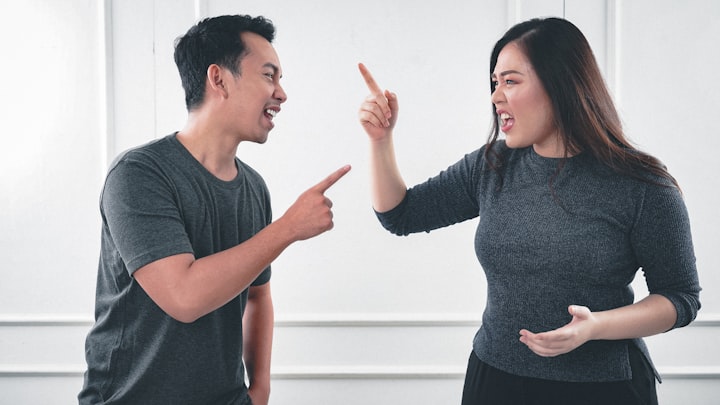
Consider the following scenario: you and a new acquaintance (or perhaps an old acquaintance you haven't seen in a long time) are speaking normally, gently moving from topic to topic. The tone of the discourse is friendly. I'm doing fantastic, you thought between two assenting smiles. You smile at each other. A concept enters your mind hours or days later. God, I should not have said that. You can't stop replaying the talk, focused on where you went wrong. You eventually conclude that the other person thinks you're a complete moron.
The "liking gap" is a theory that explains why people frequently underestimate how much they are liked by others following a social engagement. In 2018, the journal Psychological Science released the first liking gap research. Gus Cooney, one of the study's authors and a professor at the University of Pennsylvania's Wharton School, tells VICE that he believes the liking gap is a type of functional behavior. "If you and I converse and I make a horrible joke, it's natural for me to wonder, Did I upset Anna with that joke?" Cooney says. "I believe the issue arises when the reaction is excessive."

According to the study, the like gap arises because we don't know how to ask someone how much they like us after the interaction has ended. We can only speculate, retracing our steps and re-evaluating every detail, wondering what impact they had on a person whose personality and beliefs we do not fully understand. And such guessing efforts are frequently conditioned by an inner monologue that is "particularly self-critical and unpleasant, especially when combined with the uncertainty of confronting someone new." In layman's terms, the liking gap shows that many individuals question if somebody dislikes them after a perfectly regular interaction. According to the study, people consistently underestimate how much others like them, even when the other person expresses her engagement in the discussion with unmistakable indications (laughter, smiles, hand gestures). We miss such signals because we are so preoccupied with what we are saying and how it sounds, and the liking gap remains.
What's more fascinating is that, as the research authors point out, people tend to overestimate their abilities in other areas, such as driving skills, love relationships, and so on. In other words, we think we're amazing individuals until we talk to someone else, and then we think we're terrible.

The researchers examined several circumstances in which different people first met: strangers who show up because they work in the same lab, college freshmen who become housemates, and general strangers who are known. during a workshop. The researchers asked each participant in each situation how much they liked the individual with whom they spoke and vice versa. On average, participants assigned a substantially lesser value to their "perceived appreciation" than their interlocutor did.
It makes sense, as Cooney explains: that self-critical tiny voice keeps us from speaking improperly things. However, as the liking gap hypothesis illustrates, that voice isn't as little as it appears, and we tend to be too critical of ourselves to the point where we assume individuals who claim they like us are lying. According to the study, the only persons who do not consider themselves shy appear to be immune to this difficulty. Could this be the source of your self-assurance? Maybe, maybe not, but it explains why some individuals seem to be able to navigate the world with ease, never coming across the realization that they are genuinely disliked by everyone they've ever encountered.
Cooney highlighted a follow-up study that investigated the liking difference among children beyond the age of five and was published in Psychological Science. According to the study, there is no "satisfaction gap" in very young children, but it arises during infancy and increases in tandem with the time a kid learns to notice and value her reputation. "Very young children don't care if someone loves them or not; they're not interested in establishing a reputation," Cooney explains. "However, as soon as they are old enough to hear the small voice that values reputation, the liking gap arises."

All previous research on the like gap has concentrated on interactions between distant acquaintances or freshly unknown persons, but Cooney says that the liking gap may also arise amongst people who haven't interacted in a long time. With the COVID-19 pandemic, coming from more than a year of relative isolation - and having to find out how to communicate with other people again - will very certainly lead to huge liking gaps even close friends who haven't seen or been unable to talk to one other since 2019.
The good news is that studies discovered that the liking difference between college housemates reduces over time. It's scientifically proved that if you feel arrogant and foolish with new people - or haven't seen in a year - those sentiments won't persist forever. As you grow to know someone better and feel more at ease engaging with them, the gap closes and you no longer feel the need to evaluate every statement you make. Isn't that nice? Isn't it similar to friendship in general?
Thank you for reading.
See you next time!
Wero






Comments
There are no comments for this story
Be the first to respond and start the conversation.